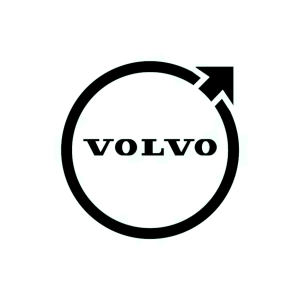Stena gives Volvo bus batteries a second life
Volvo Buses has partnered with Stena Recycling's Batteryloop to extend the life of bus batteries, repurposing them as energy storage units for buildings and charging stations after their use in buses. This initiative not only conserves natural resources but also promotes sustainability through a circular business model. The collaboration encompasses all batteries used in Volvo's electric buses globally, responding to increasing demand for electric public transport and energy storage solutions. The partnership aims to transform previously incurred costs into revenue streams for customers.
- Collaboration with Batteryloop enhances sustainability through battery recycling and reuse.
- Partnership transforms bus batteries into energy storage units, conserving natural resources.
- Global agreement covers all electric bus batteries, supporting increased demand for electric buses.
- None.
GOTHENBURG, Sweden, Sept. 10, 2020 /PRNewswire/ -- The commercial service lives of bus batteries are significantly extended and natural resources are conserved. That is the result of a new cooperation between Volvo Buses and Stena Recycling subsidiary Batteryloop. After the batteries are removed from Volvo's buses, they are reused as energy storage units for a number of years, for instance in buildings and charging stations.
"Volvo Buses is one of the pioneers in electromobility which provides clean, quiet and efficient public transport. We have a clear-cut sustainability strategy at every single stage of our value chain, and we are now taking yet another step forward through planned, consistent reuse of bus batteries. In our electromobility operation we are thus creating a new circular business cycle and this cooperation is truly a major step in the right direction," says Håkan Agnevall, President of Volvo Buses.
Bus batteries are used for many years in regular traffic before they need to be replaced. However, when new batteries are fitted to the vehicle, the old ones still have considerable capacity left to offer. This capacity is too limited to efficiently propel a bus, but it is more than sufficient for static use for energy storage purposes. Repurposing the batteries means that natural resources can be conserved since it is not necessary to use new batteries for energy storage.
"We are delighted and proud that Batteryloop has the opportunity to buy the used batteries and develop this solution together with Volvo Buses. In addition to reuse, under the agreement we also guarantee safe and environmentally suitable recycling when the batteries come to the end of their second life as energy storage units. We thus offer a sustainable circular solution for Volvo Buses batteries. What is more, this cooperation means we can convert a cost into a source of revenue for the customer," says Rasmus Bergström, President of Batteryloop.
The new recently signed agreement has a global reach. It covers all the batteries for which Volvo Buses is responsible in its electric buses the world over. To date most of these buses are to be found in Europe, but the number of electrified buses is expected to increase in other parts of the world too.
"We see a steadily increasing demand for electric buses from cities all over the world, and since we entered the electric bus market early, the numbers of used batteries are set to increase," explains Håkan Agnevall.
The demand for local energy storage units is expected to increase in the future. Not least, an energy storage unit offers new scope for storing renewable energy, which can be used to meet peaks in electricity demand. Any surplus can be sold, delivered straight into the grid.
"An energy storage unit is like a large power bank that gives the user considerable flexibility and can help generate income. We see that there is a fast-growing market in different kinds of properties, and also for charging stations for electric vehicles both in industry and in society. Our cooperation with Volvo Buses will provide a valuable contribution to development of the infrastructure that needs to be built up," comments Rasmus Bergström.
Batteryloop and Volvo Buses have already previously been involved in a joint project with Stena Fastigheter, whereby bus batteries are used as energy storage units to provide electricity to the Fyrklövern residential area in Gothenburg. The electricity that is stored in these units comes from solar panels fitted to the apartment buildings' rooftops.
For further information, please contact:
Joakim Kenndal
Head of Media Relations Volvo Buses
Tel: +46-739-02-51-50 or
Jörgen Andersson
PR Manager, Stena Metall
Tel: +46-10-445-2217
For more information, please visit volvogroup.com/electromobility
The Volvo Group drives prosperity through transport solutions, offering trucks, buses, construction equipment, power solutions for marine and industrial applications, financing and services that increase our customers' uptime and productivity. Founded in 1927, the Volvo Group is committed to shaping the future landscape of sustainable transport and infrastructure solutions. The Volvo Group is headquartered in Gothenburg, Sweden, employs 104.000 people and serves customers in more than 190 markets. In 2019, net sales amounted to about SEK 432 billion (EUR 40.5 billion). Volvo shares are listed on Nasdaq Stockholm.
This information was brought to you by Cision http://news.cision.com
https://news.cision.com/ab-volvo/r/stena-gives-volvo-bus-batteries-a-second-life,c3192370
The following files are available for download:
200910-volvo-buses-batteries-second-life-pressrelease-eng.pdf | |
https://news.cision.com/ab-volvo/i/1860x1050-image-volvo-buses-electric,c2823580 | 1860x1050-image-volvo-buses-electric |
![]() View original content:http://www.prnewswire.com/news-releases/stena-gives-volvo-bus-batteries-a-second-life-301127372.html
View original content:http://www.prnewswire.com/news-releases/stena-gives-volvo-bus-batteries-a-second-life-301127372.html
SOURCE AB Volvo
FAQ
What is the recent collaboration between Volvo Buses and Batteryloop?
How does the battery reuse initiative benefit Volvo Buses?
What markets are affected by the Batteryloop agreement?
What benefits do energy storage units provide?







